Filter by
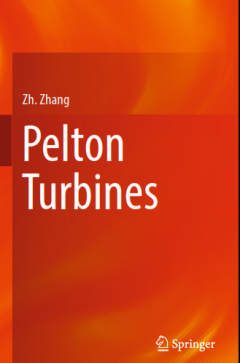
Pelton Turbines
Dalam buku teks ini, dasar-dasar hidromekanik turbin Pelton disajikan dari sudut pandang teknik desain dan pengoptimalan hidraulik. Dalam kerangka acuan, konten dengan demikian berkonsentrasi pada proses aliran terperinci dan deskripsi kuantitatifnya mengenai semua aspek hidro-mekanis yang relevan. Ini termasuk metode komputasi untuk menentukan interaksi antara jet dan bucket yang berputar, men…
- Edition
- -
- ISBN/ISSN
- 978-3-319-31909-4
- Collation
- -
- Series Title
- -
- Call Number
- T 621.24 ZHA p c.1
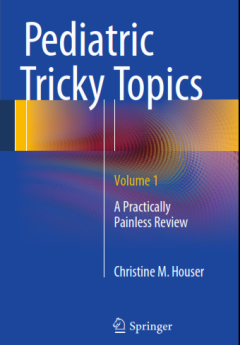
Pediatric Tricky Topics, Volume 1, A Practically Painless Review
Menyimpan semua informasi yang relevan di ujung jari Anda di bidang seluas pediatri merupakan tugas yang penting dan cukup banyak yang harus dikelola. Ditambah dengan jadwal sibuk sebagian besar dokter dan calon dokter yang menjalankan praktik atau studi kedokteran, kehidupan keluarga, dan berbagai kewajiban pribadi dan profesional lainnya, dan itu bisa menjadi hal yang menakutkan. Apakah Anda …
- Edition
- Vol. 1
- ISBN/ISSN
- 978-1-4939-1859-1
- Collation
- -
- Series Title
- -
- Call Number
- T 618.92 HOU p c.1

Pediatric Sedation Outside of the Operating Room, A Multispecialty Internatio…
Saya merasa terhormat dan senang mempersembahkan dalam waktu singkat hanya 2 tahun, edisi ke-2 yang diperbarui dan diperluas ini. Buku ini memiliki ukuran, bab, dan kepenulisan yang berlipat ganda, terutama dengan perluasan kontribusi yang signifikan dari para pemimpin internasional. Para penulis ini merupakan pionir dalam bidang keahliannya, baik di Amerika Serikat maupun di luar negeri, tidak…
- Edition
- -
- ISBN/ISSN
- 978-1-4939-1390-9
- Collation
- -
- Series Title
- -
- Call Number
- T 618.92 MAS p c.1
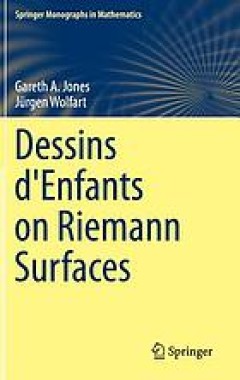
Dessins d'Enfants on Riemann Surfaces
This volume provides an introduction to dessins d'enfants and embeddings of bipartite graphs in compact Riemann surfaces. The first part of the book presents basic material, guiding the reader through the current field of research. A key point of the second part is the interplay between the automorphism groups of dessins and their Riemann surfaces, and the action of the absolute Galois group on…
- Edition
- -
- ISBN/ISSN
- 9783319247113
- Collation
- -
- Series Title
- -
- Call Number
- 516.35
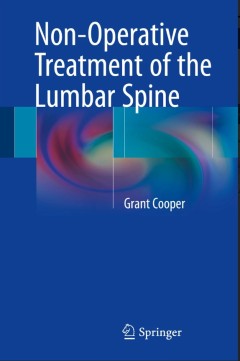
Non-Operative Treatment of the Lumbar Spine
Bridging the gap between the medical literature and the practice of lumbar spine medicine, this user-friendly, accessible text describes the causes of lower back pain and associated “sciatic” pathologies and how these problems can be successfully treated without surgery. Beginning with a review of the anatomy of the lumbar spine and the most common causes of lower back pain, diagnostic and …
- Edition
- 1
- ISBN/ISSN
- 978-3-319-21443-6
- Collation
- XIII, 163
- Series Title
- -
- Call Number
- -
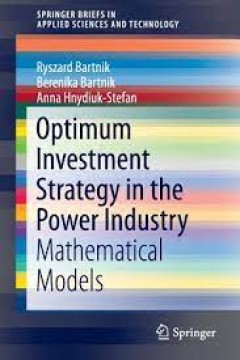
Optimum Investment Strategy in the Power Industry Mathematical Models
This book presents an innovative methodology for identifying optimum investment strategies in the power industry. To do so, it examines results including, among others, the impact of oxy-fuel technology on CO2 emissions prices, and the specific cost of electricity production. The technical and economic analysis presented here extend the available knowledge in the field of investment optimizati…
- Edition
- -
- ISBN/ISSN
- 978-3-319-31872-1
- Collation
- -
- Series Title
- -
- Call Number
- -
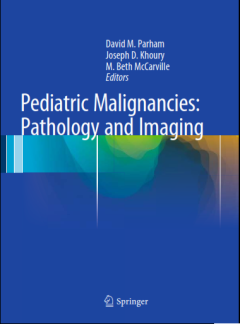
Pediatric Malignancies: Pathology and Imaging
The past 30 years bear witness to a profound evolution in our ability to diagnose pediatric cancers. What were once common diagnostic dilemmas are now routinely categorized with the help of ancillary tests such as immunohistochemistry, fl uorescence in situ hybridization, and a myriad of molecular diagnostics tools. We are now moving into an unprecedented new realm wherein personalized medicin…
- Edition
- -
- ISBN/ISSN
- 978-1-4939-1729-7
- Collation
- -
- Series Title
- -
- Call Number
- T 618.92 PAR p c.1
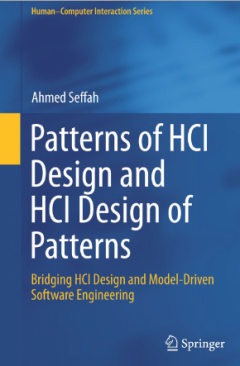
Patterns of HCI Design and HCI Design of Patterns, Bridging HCI Design and Mo…
rekayasa perangkat lunak (SE) dan interaksi manusia-komputer (HCI)/faktor manusia yang bekerja secara harmonis. Karena keselarasan antara HCI dan SE ini sulit diprediksi sebelum sistem yang berfungsi penuh benar-benar diterapkan, pengalaman desain dan kolaborasi yang ekstensif sangat penting. Pola desain interaksi juga disebut pola desain pengalaman pengguna, pola desain HCI atau antarmuka peng…
- Edition
- -
- ISBN/ISSN
- 978-3-319-15687-3
- Collation
- -
- Series Title
- Seri Interaksi Manusia-Komputer (HCIS)
- Call Number
- T 005.12 SEF p c.1

Optimization of Polynomials in Non-Commuting Variables
This book presents recent results on positivity and optimization of polynomials in non-commuting variables. Researchers in non-commutative algebraic geometry, control theory, system engineering, optimization, quantum physics and information science will find the unified notation and mixture of algebraic geometry and mathematical programming useful. Theoretical results are matched with algorithm…
- Edition
- -
- ISBN/ISSN
- 978-3-319-33338-0
- Collation
- -
- Series Title
- -
- Call Number
- -

Optimization of Integrated Supply Chain Planning under Multiple Uncertainty
The subject of this book is supply chain logistics planning optimization under multiple uncertainties, the key issue in supply chain management. Focusing on the strategic-alliance three-level supply chain, the model of supply chain logistics planning was established in terms of the market prices and the market requirements as random variables of manufactured goods with random expected value…
- Edition
- -
- ISBN/ISSN
- 978-3-662-47250-7
- Collation
- -
- Series Title
- -
- Call Number
- -
 Computer Science, Information & General Works
Computer Science, Information & General Works  Philosophy & Psychology
Philosophy & Psychology  Religion
Religion  Social Sciences
Social Sciences  Language
Language  Pure Science
Pure Science  Applied Sciences
Applied Sciences  Art & Recreation
Art & Recreation  Literature
Literature  History & Geography
History & Geography